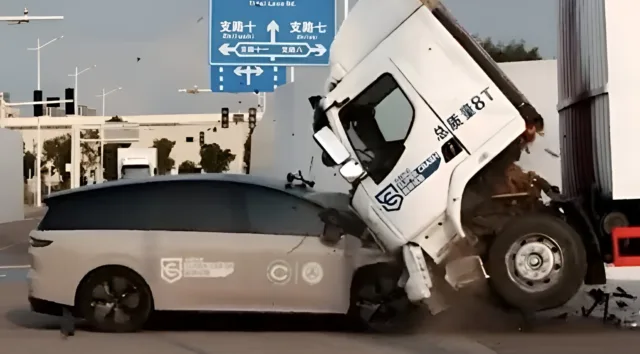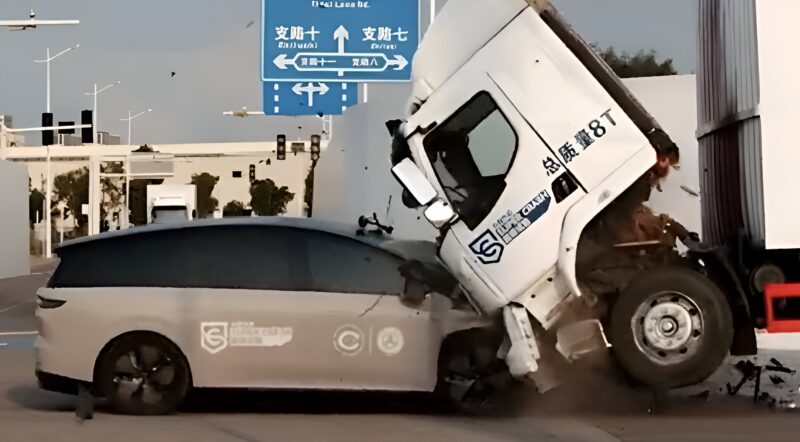Li Auto has issued a formal clarification after controversy erupted over a crash test video shown during the July 29 launch of its new i8 SUV. The video depicted a high-speed frontal collision with a heavy-duty Chenglong truck, showing minimal deformation to the i8 and significant cab damage to the car. In an August 3 statement on Weibo, Li Auto said the test, conducted by an independent third-party institute, was intended to evaluate the vehicle’s passive safety performance.
The video quickly drew a public response from Chenglong Truck, a subsidiary of Dongfeng Liuzhou Motor, which argued on August 1 that the test conditions were not representative of real-world traffic scenarios. The company emphasised the importance of rational crash analysis and reaffirmed its commitment to safety in the commercial vehicle sector. Dongfeng Group, Chenglong’s parent firm, also raised concern over the video’s portrayal of its brand, opposed what it called “involution-style competition,” and reaffirmed its support for fair and sustainable industry practices.
In its August 3 statement, Li Auto provided additional context, noting that the test was conducted by the state-owned China Automotive Engineering Research Institute Co., Ltd., a nationally recognised testing authority. The company said the test aimed to assess the i8’s ability to withstand collisions with large vehicles such as trucks, a scenario increasingly relevant on China’s highways.
The i8 reportedly sustained no deformation to critical structures, including the A-, B-, and C-pillars and door beams. All nine airbags deployed properly, no leakage or thermal issues were observed in the battery pack, and the doors automatically unlocked with handles extending as intended. The vehicle’s front “short overhang” design—originally intended to improve cabin space—was said to have performed well under impact conditions.
Li Auto clarified that the Chenglong vehicle used in the video was a second-hand truck purchased and modified as a movable crash barrier. It stressed that the purpose of the test was not to evaluate the truck’s safety performance. The company acknowledged the unexpected online reaction and expressed regret that Chenglong had been drawn into public controversy. It emphasised that Li Auto and Chenglong operate in separate vehicle markets, with no direct competition.
The i8 was developed to meet China’s latest regulatory standards for front, side, and rear crash protection. It was benchmarked to meet the highest ratings under both the China New Car Assessment Program (C-NCAP Version 24) and the China Insurance Automotive Safety Index (C-IASI Version 23). The vehicle reportedly underwent over 100 crash test scenarios internally, including “truck pinching” simulations.
Li Auto concluded its statement by reaffirming its commitment to automotive safety and expressed willingness to collaborate with industry stakeholders to improve crash resilience and vehicle protection standards.
Follow us for ev updates









